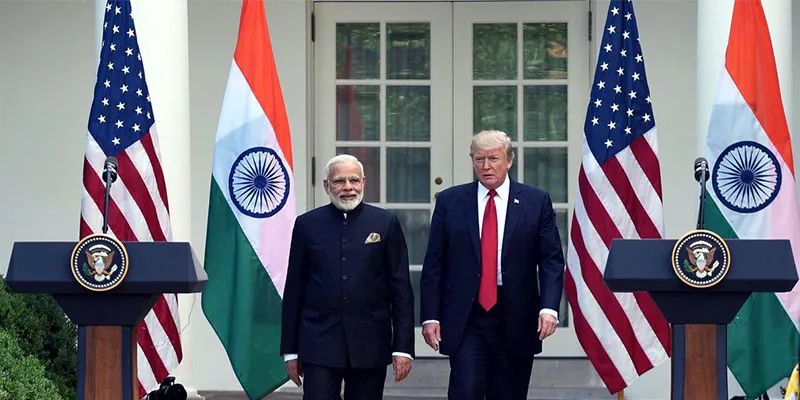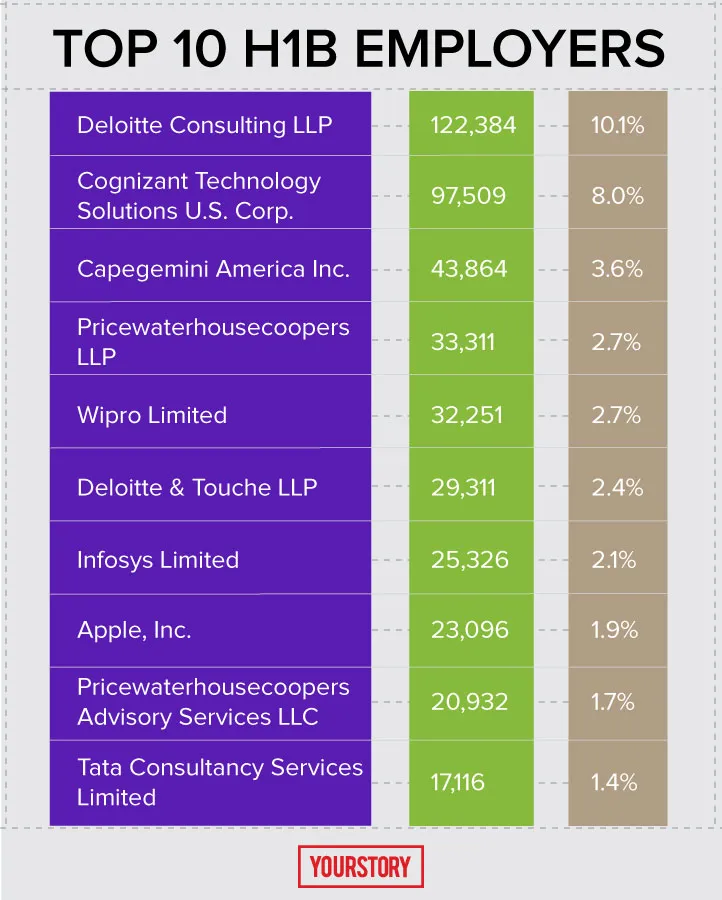Indian IT bears the brunt of Trump’s visa reforms; H1B filings at an all-time low
More than 200,000 Indians have gone to the US on H1B visas in the last three years, but a study by the San Francisco Chronicle reveals that firms like Wipro, Infosys, and TCS have reduced visa filings.
Indian IT companies are facing the heat from US President Donald Trump’s “Buy American, Hire American” campaign. The president, who is campaigning for local job growth over cheap Indian IT labour, has been demanding reforms of the H1B visa programme. The H1B is used by most highly skilled workers in the US, including Indian nationals working in the IT sector.
Recent data suggests that Trump’s campaigns have made IT companies reduce H1B visa filings, with Infosys, Wipro and TCS not being active at all in filing for visas recently.
A study conducted by the San Francisco Chronicle revealed that Indian firms such as Wipro had reduced visa filings by 52.4 percent over 2015 and 2017.
TCS reported an 18.3 percent decline while Infosys saw a 38.1 percent reduction. Wipro applied for only 5,812 visa applications for engineers to work in the US in 2017, while TCS applied for 13,537 and Infosys filed 20,587 applications, according to data from the US Department of Labour.

The findings from San Francisco Chronicle also said that many Indian consulting firms, which have been accused of flooding the system with applications, have dramatically reduced their filings. However, since the decline in the number of applications made by Indian IT firms was the most in the last year, the newspaper noted that the Trump administration’s hardline anti-immigration stance is taking its toll.
The H1B visa is a non-immigrant visa that allows US companies to employ foreign workers in specialty occupations needing theoretical or technical expertise.
Envoy Global, a technology-oriented immigration services provider, reports that 26 percent of employers it surveyed have had to delay projects, and 22 percent of them have relocated work overseas as a result of the current uncertainties in the US immigration system.
The San Francisco Chronicle, meanwhile, argued that foreign-born workers are good for the US economy and good for US-born workers.
The Chronicle in its findings also said that when companies are allowed to hire the workers with the best skills for the job—regardless of where those workers happen to have been born—their increased competitiveness boosts all the industries around them.
Grace period: 60 days
The United States Citizenship and Immigration Services (USCIS) has introduced few new rules that will benefit H1B and H4 visa holders. There is speculation that the Donald Trump administration may introduce rules that will be difficult for H1B visas holders, but the USCIS will now allow a grace period of 60 days to terminated H1B visa holders to find a new job or to leave the US.
The terminated H1B holder will have an advantage of sorting out the paperwork within a period of 60 days as compared to earlier incidents where individuals were asked to leave immediately. The termination of employment for a non-immigrant worker could be a very stressful situation; the grace period of 60 days will help terminated H1B visa holders to find a new job to transfer the H1B visa before they are required to leave the country. Those finding it difficult to get a new job will have enough time to plan their exit from the US.
Around 75,000 IT employees go to the US on an average every year on H1B visas. With the US taking steps to curb this number and increase the wage cap to protect American workers, the move has far-reaching implications for Indian corporations. The top 3 H1B employers are Deloitte, Capgemini, and Cognizant (see graph).

Impact on margins
DD Mishra, Research Director of Gartner Inc, says: “Indian IT has always managed to wade through this situation [in the past]. But this time there will be an impact on margins because of the wage hike and the focus on local hiring,”
While Infosys has over 25,000 Indians on H-1B visas in the US currently, Wipro employs more than 32,000 people in the country.
Here are some things corporations can expect, following Trump's executive order to overhaul the H-1B visa:
* Services will cost more for corporations and billings will be high.
* IT company margins will fall because they will have to pay more in the form of salaries.
* IT companies will have to prove their digital and artificial intelligence (AI) narrative going forward.
* The legislation increases the minimum wage for H-1B visa eligibility to $130,000.
* IT companies should justify the value of the employee sent to work in the US.
* Finding talent in the US would be expensive and scarce going forward.
IT companies work on a 25:75 model, which means 25 percent work globally and 75 percent in India. But this model will change going forward, as these companies start to focus more on robotic process automation for clients. In other words, most of the work can be done from India itself, with only high-value IT employees going to the US.







